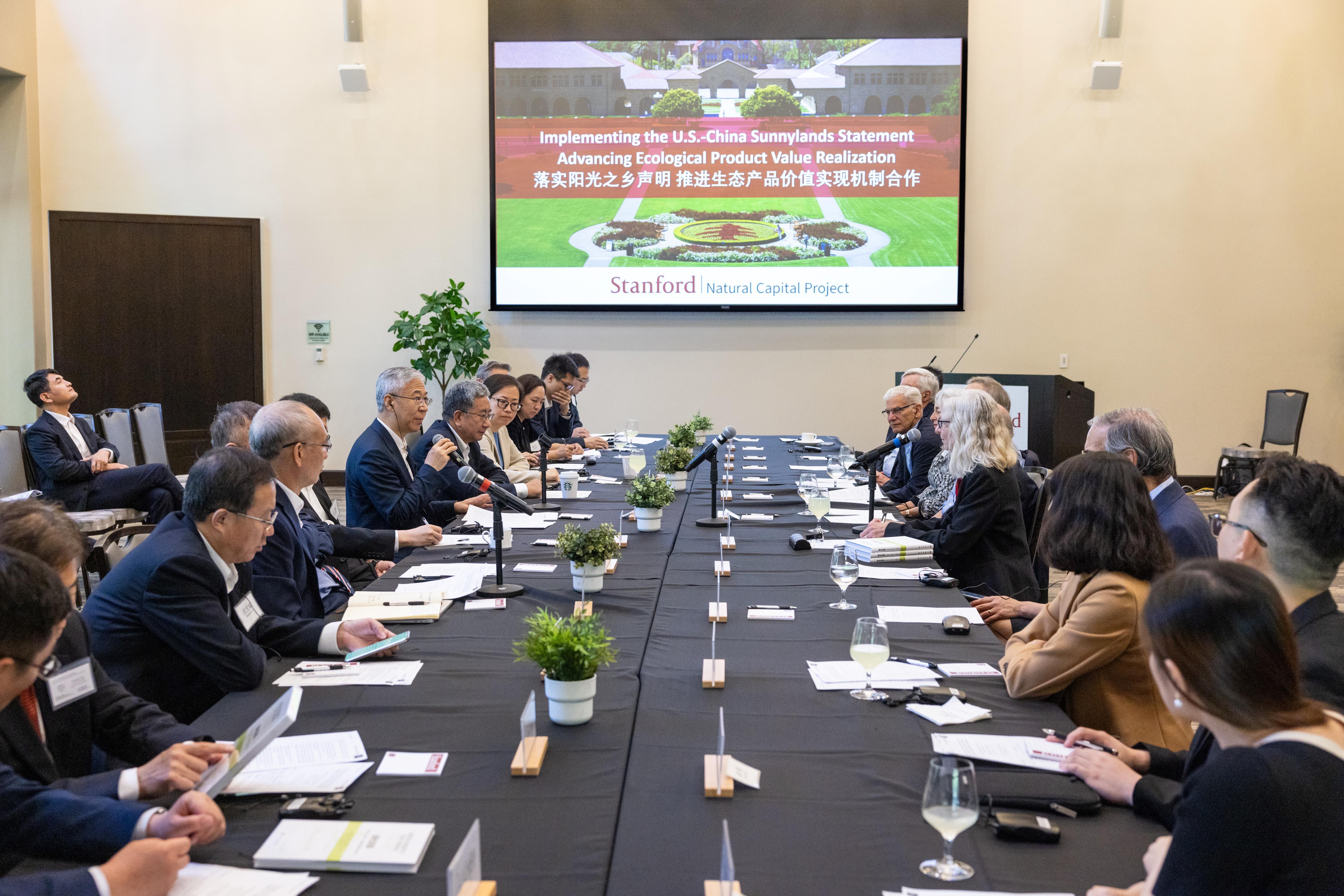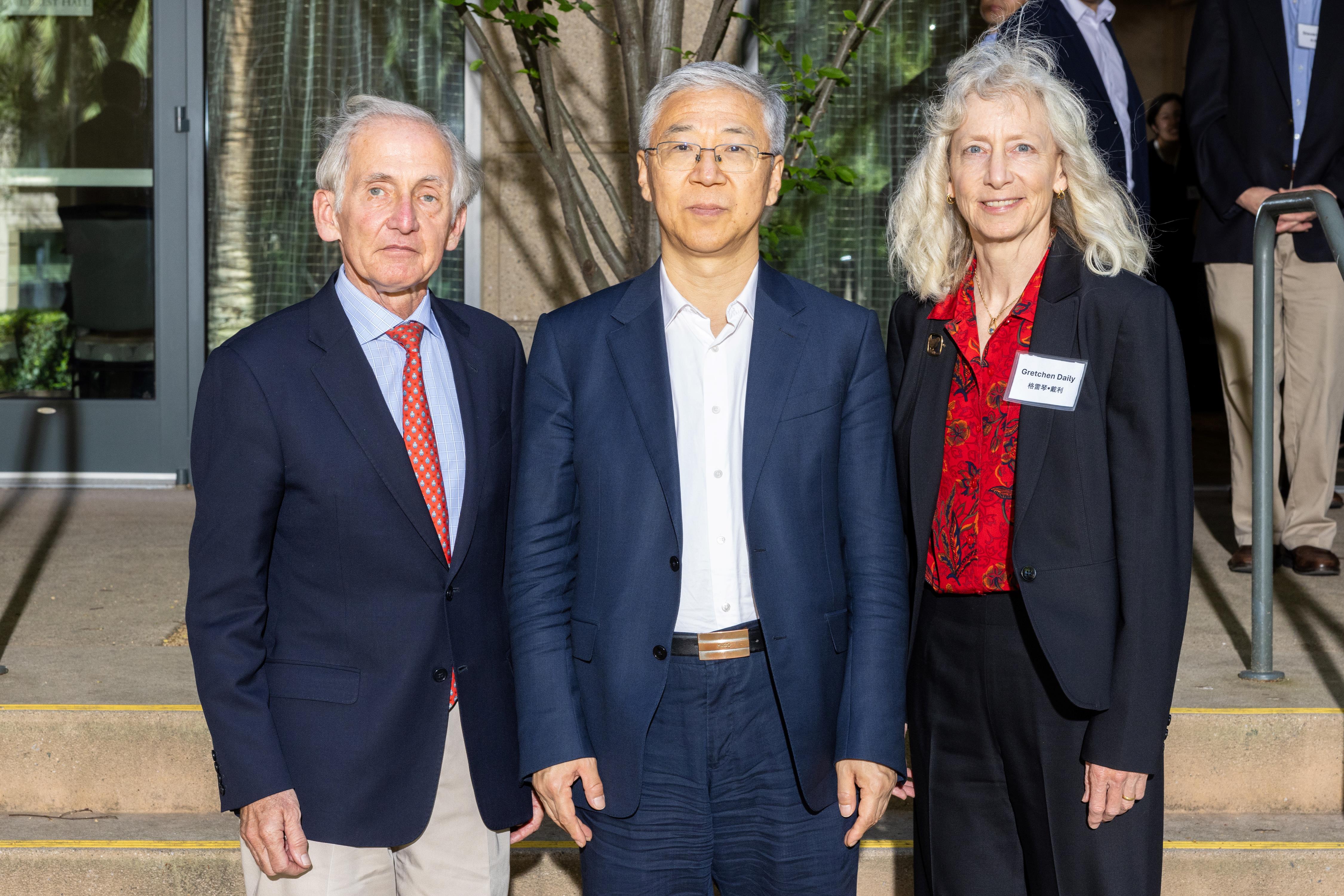On May 30, at Stanford University, the Natural Capital Project (NatCap) hosted a delegation of leading policymakers and experts from China for a high-level dialogue on valuing nature, “Implementing the Sunnylands Agreement, Advancing Ecological Product Value Realization." The group discussed both the immense progress China has made in quantifying the benefits of ecosystems to people and integrating it into policies, and their hopes for further U.S.-China cooperation to advance a sustainable future, not just for their countries, but for the world.
“The need for cooperation has never been greater,” said Gretchen Daily, Faculty Director of NatCap, citing a recent Nature editorial urging the U.S. and China to renew their science pact (and pointing to NatCap and the Chinese Academy of Sciences’ work in its two citations). The dialogue at Stanford aimed to support implementation of the Sunnylands Statement on Enhancing Cooperation to Address the Climate Crisis from November 2023, when U.S. Special Presidential Envoy for Climate John Kerry and China Special Envoy for Climate Change Xie Zhenhua met at Sunnylands, California.

The Chinese delegation to Stanford was led by Chenxin Zhao, Vice Chairman of the National Development and Reform Commission of China (NDRC). He was accompanied by Dechun Liu, Director-General of the NDRC Department of Resource Conservation and Environmental Protection, and senior staff members. Professor Zhiyun Ouyang of the Research Center for Eco-Environmental Sciences, Chinese Academy of Sciences and several other leading experts from China also attended. The delegation was welcomed by Stanford University President Richard Saller and Steven Chu, the William R. Kenan, Jr. Professor of Physics, of Molecular and Cellular Physiology, and of Energy Science and Engineering, in addition to Daily and others from NatCap.
Ouyang of the Chinese Academy of Sciences gave a presentation on the progress made in China on ecosystem services valuation and policy, particularly the widespread adoption of Gross Ecosystem Product (GEP).
Daily noted the U.S. government is also making strides, including its recent Office of Management and Budget guidance requiring federal agencies to consider ecosystem services -- the benefits nature provides to people -- in its cost-benefit analyses of all projects and policies. She also applauded China’s efforts to promote an “ecological civilization.”

“We recognize China as a world leader in this crucial frontier for harmonizing people and nature, and it is such an honor to work together these many years… Our experience in China, we are now bringing to the world,” said Daily, who is also the Bing Professor of Environmental Science.
Read more about NatCap and the Chinese Academy of Sciences' collaboration in this 2018 news story.
This dialogue was organized in collaboration with the China Association of Circular Economy and the Research Center for Eco-Environmental Sciences, Chinese Academy of Sciences. Mengye Zhu from the Center for Global Sustainability, University of Maryland supported the organization of the event. The California-China Climate Institute provided assistance.
The Natural Capital Project is based at Stanford University’s Doerr School of Sustainability and its Woods Institute for the Environment, and in the School of Humanities and Sciences.
